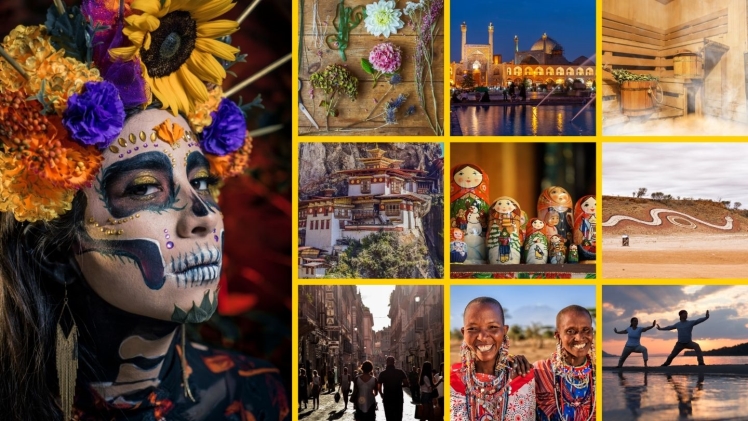Entertainment, a multifaceted tapestry woven with threads of joy, culture, and creativity, holds a unique position in our lives. From the earliest forms of communal storytelling around a fire to the high-tech extravaganzas of the digital age, the human need for entertainment has been a constant. It is not merely a diversion but a reflection of our collective spirit, encompassing a rich array of activities that captivate, inspire, and bring people together.
Diverse Forms of Entertainment:
Entertainment is a broad term that spans an eclectic range of activities and mediums, each catering to different tastes and preferences. Performing arts, including theater, dance, and live music, have been integral to human culture for centuries. These art forms have the power to evoke emotions, tell stories, and provide a shared experience that connects individuals across time and space.
The world of cinema, with its ability to transport audiences to different realms and tell compelling stories, has become a global phenomenon. Whether through Hollywood blockbusters, independent films, or international cinema, movies have the power to stir our imagination, provoke thought, and offer an escape from reality.
Music, a universal language, transcends cultural boundaries and has the capacity to evoke a wide range of emotions. From classical compositions to contemporary pop hits, music is a constant companion in our lives, shaping our moods and creating lasting memories.
The advent of technology has ushered in new forms of entertainment, with video games becoming a dynamic and interactive medium. Gaming is not just a leisure activity; it is a vibrant industry that combines storytelling, art, and technology to create immersive experiences that captivate millions of players worldwide.
Television, with its diverse array of genres and formats, remains a staple in households globally. From scripted dramas and comedies to reality shows and documentaries, television provides a window into different worlds, fostering a sense of connection and shared cultural experiences.
Entertainment as Cultural Expression:
Beyond providing amusement, entertainment serves as a mirror reflecting the values, beliefs, and cultural nuances of societies. Folk dances, traditional music, and indigenous storytelling are not just forms of entertainment; they are vital expressions of cultural identity. Festivals and celebrations, infused with music, dance, and art, play a crucial role in preserving and passing on cultural heritage from one generation to the next.
In the era of globalization, the exchange of entertainment has become a powerful means of cultural diplomacy. Movies, music, and television shows from one part of the world can transcend borders, offering audiences a glimpse into different cultures and fostering a sense of interconnectedness.
The Business of Entertainment:
Entertainment is not just an art; it is also a thriving industry with significant economic impact. The film, music, gaming, and live events industries contribute billions to the global economy. The entertainment business encompasses not only the creative aspects but also distribution, marketing, and technological innovation.
Streaming platforms, in particular, have revolutionized the way we consume entertainment. The shift from traditional cable TV to on-demand streaming services has given audiences unprecedented control over what, when, and how they consume content. This digital disruption has not only changed the business models of entertainment but has also democratized access, allowing independent creators to reach global audiences without the need for traditional gatekeepers.
Social Impact of Entertainment:
Entertainment is not just about personal enjoyment; it has the power to influence public opinion, shape societal norms, and drive social change. Films, television shows, and music can be powerful vehicles for conveying messages, raising awareness, and challenging prevailing attitudes. From addressing social issues to promoting inclusivity and diversity, entertainment has the potential to be a force for positive change.
Moreover, entertainment serves as a communal experience that brings people together, fostering a sense of shared identity. Sporting events, concerts, and cultural festivals create spaces where diverse individuals can unite in celebration, transcending differences and building connections.
Challenges and Opportunities in the Digital Age:
While the digital age has brought unprecedented opportunities for the entertainment industry, it also presents challenges. Issues such as piracy, digital saturation, and the need for fair compensation for creators are ongoing concerns. Additionally, the democratization of content creation has led to an abundance of choices, making it challenging for creators to stand out in a crowded digital landscape.
However, the digital age also offers new avenues for innovation and collaboration. Virtual reality (VR) and augmented reality (AR) are transforming the way we experience entertainment, providing immersive and interactive encounters. The rise of user-generated content on platforms like YouTube and TikTok has given a platform to emerging talents and allowed audiences to participate in the creation of content.
Conclusion:
Entertainment, with its myriad forms and expressions, weaves the fabric of our lives, connecting individuals and communities across time and space. It is a celebration of creativity, a reflection of culture, and a powerful catalyst for joy and social cohesion. As we navigate the ever-evolving landscape of entertainment, from the traditional to the cutting-edge, one thing remains constant—the enduring human desire to be entertained, inspired, and united through the magic of storytelling, music, and art. In this dynamic and diverse realm, entertainment continues to shape and enrich our collective human experience.





